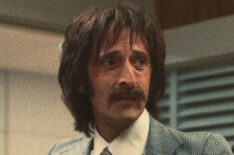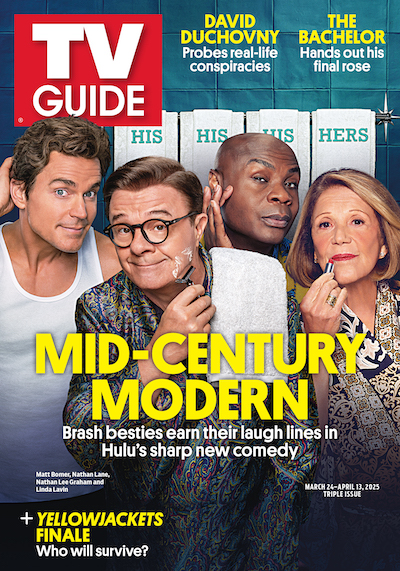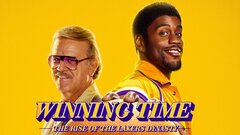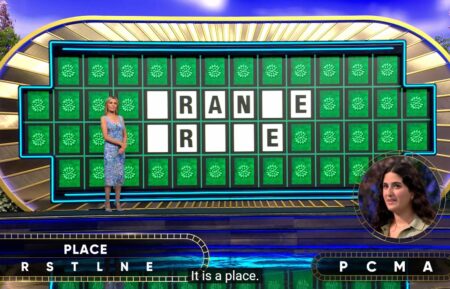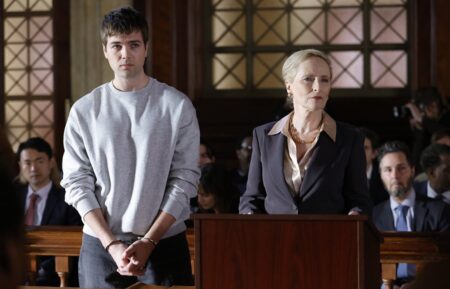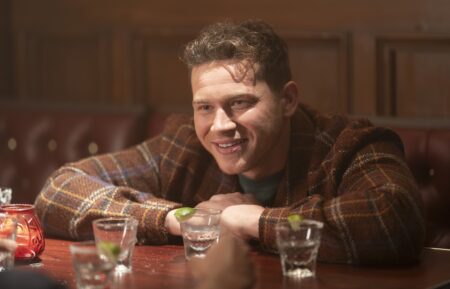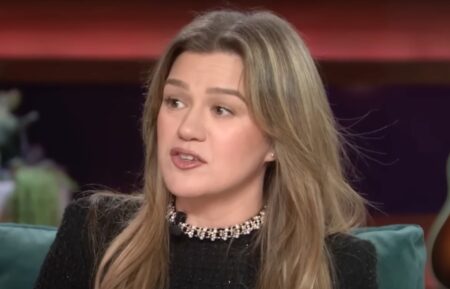‘Winning Time’: Tracy Letts Talks Shining Light on Coach Jack McKinney
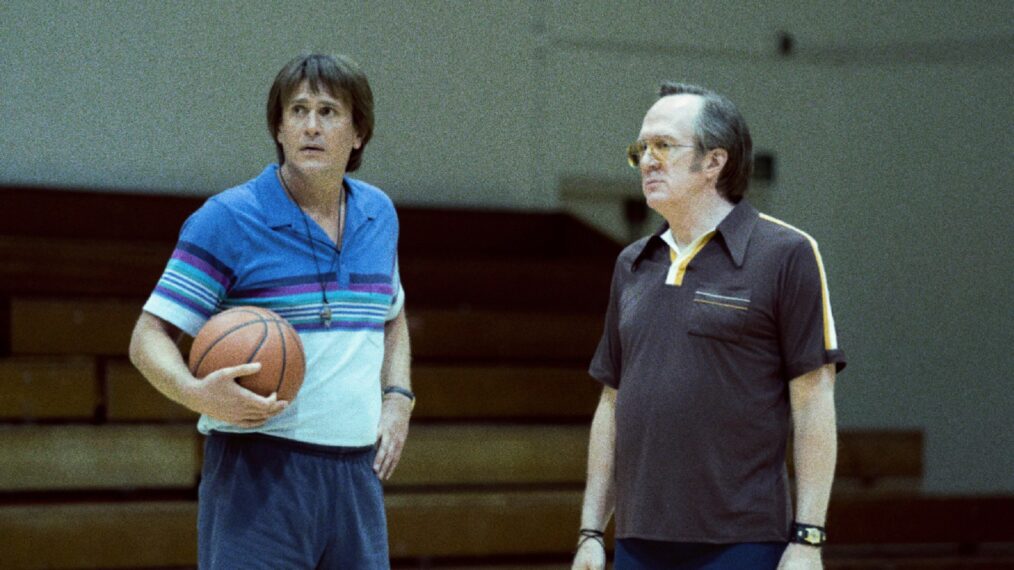
Spoiler Alert
“Who the f*** is Jack McKinney?”
It’s a valid question Dr. Jerry Buss (John C. Reilly) needed an answer to on Winning Time: The Rise of the Lakers Dynasty as he worked feverishly to find a head coach for his team. A huge void was created after former coach Jerry West (Jason Clarke) shockingly stepped aside with training camp for the 1979-80 season looming.
Acclaimed actor and screenwriter Tracy Letts stepped into the role of McKinney, playing out his journey from triumph to tragedy. The visionary flipped the playbook upside down and sketched out the blueprint for what would become the “Showtime” era of professional basketball. His fast-paced running approach lit a fire under the likes of Kareem Abdul-Jabbar (Solomon Hughes), Magic Johnson (Quincy Isaiah), Norm Nixon (DeVaughn Nixon) and Michael Cooper (Delante Desouza) as the team was transformed into a money-drawing dynasty.
Unfortunately, as seen in episode 5 of the HBO series, McKinney wouldn’t get to enjoy the team’s early success for very long. A horrific bicycle accident changed the course of his career trajectory and life forever.
Here, Letts unpacks McKinney’s arc on the show and the importance of giving this unsung hero his due.
How much of a basketball fan were you before signing on for this project?
Tracy Letts: I’m a fan. I’m more of a baseball and football fan than a basketball fan. My basketball fandom is a bit more fair-weathered. I’ve lived in Chicago for 35 years, so I’m a Bulls fan. Then when Oklahoma got a team, there were some split allegiances because I’m from Oklahoma originally. Sometimes I find some NBA seasons and teams and players more compelling than other times.
What was it like for you to dig into Jack’s life? He seems to have this ability to see things in people they may not even see in themselves.
I think he was a good coach. DeVaughn Nixon, who is playing his father Norm Nixon, told me Norm said McKinney was his favorite coach he had in the NBA. I think very good coaches aren’t just good at the x’s and o’s or innovation. You also need to have skills as a scouter of talent and somebody who can get the most out of people, which takes a particular kind of person. He was good at it all. The year after this season he went to the Indiana Pacers and won Coach of the Year [honors]. His career in the NBA was short-lived because of this tragedy.
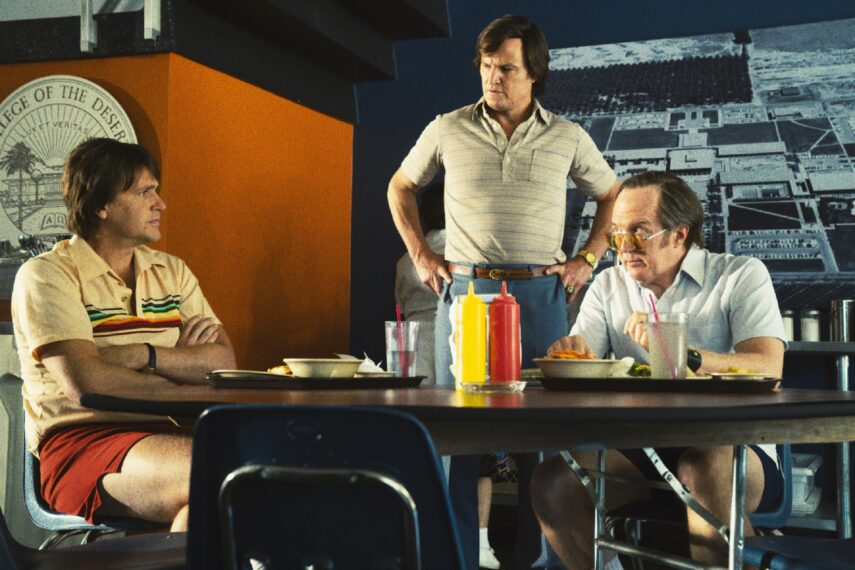
Warrick Page/HBO
You watch the scene of the bicycle accident unfold, knowing it’s coming if you are familiar with his story, but they throw a wrench in there with a distracted driver. Then it turns out to be his bicycle essentially malfunctioning as the cause of the accident.
When you hear bicycle accidents, for some reason it just doesn’t sound as bad as they can be. But of course, people die on bicycles every day, especially people who aren’t wearing helmets. There is a reason why that bicycle accident is filmed as brutally as it is because it was a brutal accident that scrambled his brain and just about killed him. Shooting the thing, I deserve none or almost none of the credit. It’s really about the stunt performers, the conception of the scene, the editors, the sound. The most challenging thing I get is to lay very still on a very hot street in Los Angeles for hours at a time. I’m never a guy to say I do my own stunts.
How was it working with Jason Segel as your onscreen Assistant Head Coach Paul Westhead? You two have natural chemistry.
I love that guy. We became dear friends. He is a lovely man. We just had a great time together. I looked forward to seeing him every day. That job would have sucked so bad if I had shown up and Jason Segel turned out to be some clown. He turns out to be this really sweet, generous guy. We hit it off immediately, which worked for the show. We were really lucky.
Tell me a little about how it felt to immerse yourself in this basketball world. The show presents such authenticity of the time but also the game itself.
It is exciting and not an area TV has covered a lot because it’s hard. It’s big and expensive, and there are a lot of moving parts. If you’re trying to shoot on TV budgets and schedules and trying to generate six or seven pages a day—and then you throw in the fact you’re trying to recreate an NBA game—it’s really challenging. The fact you have these actors playing athletes, they’re having to do this athletic work 12, 14, 16 hours a day. Athletes don’t do this s*** that many hours a day. To watch them do that was terribly exciting. There wasn’t a day that went by the actors didn’t turn to each other and say, “Do you believe what a great gig this is?” May have said it myself.
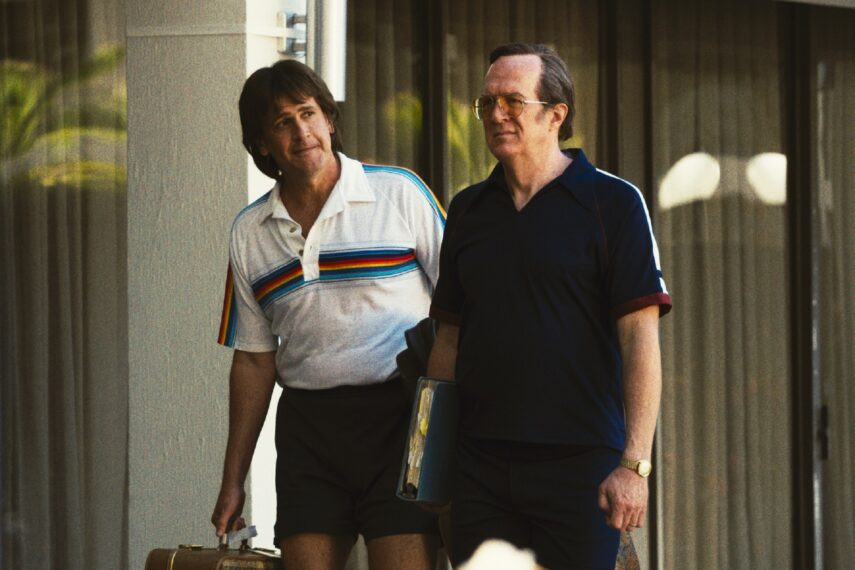
Warrick Page/HBO
What helped you along in playing this role?
I’m not a big research guy. I read the book it was based on. I watched videos. It was all on the page. My method is pretending to be the guy. If it’s well-written, and this is, then pretending to be the guy is enough. We shot some of the early basketball scenes and the coaching sessions. A couple of the players/actors asked me if I’ve coached before as I sounded like a lot of the coaches they’ve had. I said, “No, but I’ve been coached before.” Even though McKinney was a very nice man, gentle in his own regard, the truth is, coaches from that period, you would not find a vulnerable or soft coach. They all had a certain right way of communicating that was common in that era.
How important was it for you to give this man the spotlight many believe he rightfully deserves?
It’s part of the great joys of doing this. I do hope we give some flavor to the man. I do hope the show serves as a tribute to the innovation he brought to the league. I’m not an expert, but he seemed like an important figure in developing the kind of basketball we watch to this day in the NBA. And because of his accident, he is very unsung. If I can help shine a light on that, I hope his family looks at it and is made proud.
Winning Time: The Rise of the Lakers Dynasty, Sundays, 8/7c, HBO
From TV Guide Magazine
How Hulu's 'Mid-Century Modern' Is a 'Golden Girls' for Our Times
Settle in for some older and bolder laughs with the BFFs of a certain age in the new comedy starring Nathan Lane, Matt Bomer, and Nathan Lee Graham. Read the story now on TV Insider.

